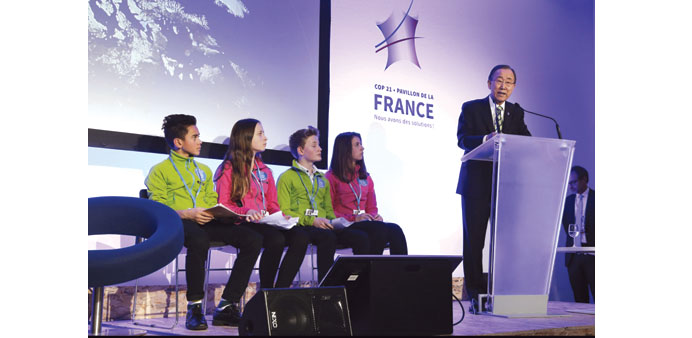Reuters
Paris
Global climate change talks in Paris moved into a new, tougher phase yesterday as negotiators agreed on a draft accord, albeit one that still leaves hundreds of points of dispute for ministers to resolve next week.
While a largely procedural step in the four-year quest for a binding deal to slow global warming, the fact that senior officials from almost 200 nations agreed on a draft marks an advance over the last, failed summit in Copenhagen six years ago.
French Foreign Minister Laurent Fabius warned that much work lay ahead to reach an accord by the end of the conference on December 11 that will bind both rich and poor nations to combat global warming beyond 2020.
“We are not discussing just the environment, the climate. It’s life,” he told delegates. “We have to succeed here.”
The top delegate from China, Su Wei, said the first week of the talks “though very difficult, have produced very good results and provide a strong foundation for next week”.
Even so, the new text highlights how much work remains to be done for ministers including US Secretary of State John Kerry, in finding consensus on issues that have bedevilled talks for four years.
Negotiators have left them 939 pieces of bracketed text representing varying options for resolving disagreements.
Some developing nations want to phase out fossil fuels by 2050, for instance, but China, the biggest emitter of greenhouse gases, is among those preferring to promise merely to shift to a low-carbon economy this century.
UN secretary general Ban Ki-moon delivering a speech next to Arctic Mission participants Johannes Breivik, Johanne Jerijaervi, Elias Damli and Erika Gjelsvik during the “Arctic/Svalbard” presentation at the COP21 UN climate change conference in Le Bourget, Paris, yesterday.

